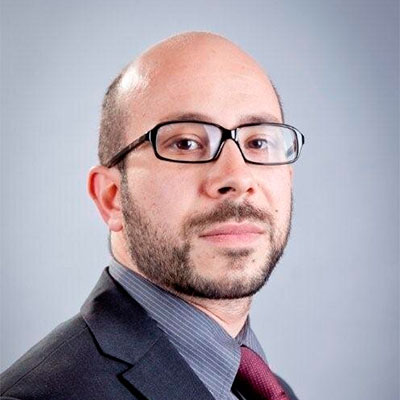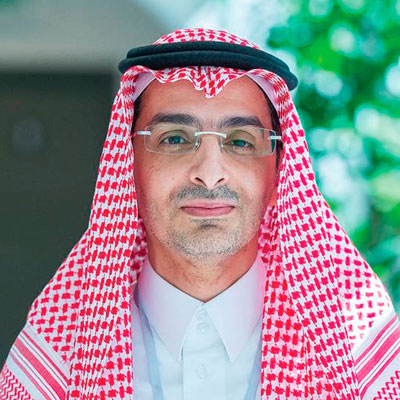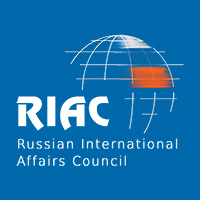Russia's New Foreign Policy Cycle
Foreign viewpoints
Russia's New Foreign Policy Cycle
Foreign Viewpoints
2018 – 2024
After the reelection of Vladimir Putin for another term as president of the Russian Federation in March of this year, Russia is entering a new cycle of foreign and domestic policy. Russia's foreign policy at the moment is particularly fraught; the conflict in Syria, the continued uncertain status of the Donbass region of Ukraine, accusations of cyberwarfare and interference in US elections, and the Skripal poisoning incident in the UK have driven wedges between Russia and many other countries. Stronger sanctions are being imposed on Russia in response to some of these issues, and there is no intention of lifting the older ones. Russia has also had undeniable foreign policy victories recently, for example, increased cooperation with China. But there are a great many difficult issues to be dealt with, particularly with regards to Russia's relationship with the West. The leaders in this new political cycle, including President Vladimir Putin, now in his fourth term, will have to make crucial strategic decisions to maintain their country's security and encourage its economy to flourish.
The Russian International Affairs Council now presents foreign viewpoints on current events and possible strategies for the new political cycle. We asked some of our foreign partners from different parts of the world to respond to questions about a variety foreign policy issues in the upcoming cycle.
The Russian International Affairs Council now presents foreign viewpoints on current events and possible strategies for the new political cycle. We asked some of our foreign partners from different parts of the world to respond to questions about a variety foreign policy issues in the upcoming cycle.
Experts

Lukasz Kulesa
Research Director at the European Leadership Network

Nora Mueller
Executive Director for International Affairs at the Körber-Stiftung

Joseph Fitsanakis
Associate Professor at Coastal Carolina University

Cameron Munter
CEO & President of The EastWest Institute

Sarah Lain
Research Fellow at RUSI

Saud al-Sarhan
Secretary-General of the King Faisal Center for Research and Islamic Studies
As a Euro-Pacific power, will Russia look East or West this year? What changes in Russia's foreign policy do you expect in the new cycle?

Lukasz Kulesa
Research Director at the European Leadership Network
Russia aspires to be one of the independent centers of power in a multi-polar world. The policy of Westernization has been abandoned, but it is unlikely Russia and China can become strategic allies or jointly form a counter-West block. Russia will look in all strategic directions – with, for example, the Middle East unexpectedly getting a lot of attention due to Russian involvement in Syria. Russia is likely to follow an independent path, generally hostile to the West but not cutting all links with it, generally open to the East but not able to affect China, Japan or India's strategic choices.
I hoped for a re-evaluation of Russia's Western policy and President Putin opting for a de-escalation of confrontation with the West in the new political cycle after March 2018. That would include acting towards resolving the Donbass crisis and decreasing the scale of propaganda / information warfare against the West. That could allow Russia to re-establish some links and trust with its European partners and create space to focus on internal development and reforms, as well as participating fully in the Chinese "belt and road" initiatives. However, after the Skripal case and Syrian airstrikes, this change seems increasingly unlikely, and Russia may rather decide to step up its confrontation with the West and intensify its search for anti-West allies, as well as continue its attempts to weaken the West (e.g. by supporting pro-Russian forces in the West). This is likely to create further political friction and create a danger of direct military conflict.
In the mid- to long-term perspective, an optimal policy for Russia would be to remain an independent power-center, but to increase its power of attraction (incl. economic) rather than coercion. That would require initiating a genuine détente with other European countries and resolving Donbass crisis by the region's re-integration into Ukraine.
I hoped for a re-evaluation of Russia's Western policy and President Putin opting for a de-escalation of confrontation with the West in the new political cycle after March 2018. That would include acting towards resolving the Donbass crisis and decreasing the scale of propaganda / information warfare against the West. That could allow Russia to re-establish some links and trust with its European partners and create space to focus on internal development and reforms, as well as participating fully in the Chinese "belt and road" initiatives. However, after the Skripal case and Syrian airstrikes, this change seems increasingly unlikely, and Russia may rather decide to step up its confrontation with the West and intensify its search for anti-West allies, as well as continue its attempts to weaken the West (e.g. by supporting pro-Russian forces in the West). This is likely to create further political friction and create a danger of direct military conflict.
In the mid- to long-term perspective, an optimal policy for Russia would be to remain an independent power-center, but to increase its power of attraction (incl. economic) rather than coercion. That would require initiating a genuine détente with other European countries and resolving Donbass crisis by the region's re-integration into Ukraine.

Joseph Fitsanakis
Associate Professor at Coastal Carolina University
Russia has no choice but to look both East and West in the coming year. Throughout our century, Russia has tried to regain its former status as a global power. To do so, it will have to make its mark far beyond its immediate region. There is no question that Russia's footprint is notable along its borders, in places such as Central Asia, the Caucasus and the Arctic — three areas of rising geopolitical importance. But that is expected from a regional power, which Russia is.
To rise to the next level, Moscow will have to continue to look further afield and create meaningful diplomatic, financial and political engagements with Southeast Asia, the Middle East, Latin America, and the European Union.
In the case of the EU, that will not be easy given the current political climate. Overall, however, I do see Russia continuing to work toward that goal. In the coming year, I see Moscow focusing on building strategic alliances with a select number of countries that have recently made openings to Moscow, both in Europe and elsewhere. These include Pakistan, Algeria, Indonesia, Turkey, Israel, Austria, Greece, Portugal, and Ireland, where Russia recently announced a significant expansion of its diplomatic facilities.
Projecting further into the future, Russia will most likely seek to smooth out its differences with a host of major European powers and re-engage with that region economically and culturally. Much will depend on the shape of Russia's domestic economy and the political leadership that will emerge in Europe in the coming decade.
To rise to the next level, Moscow will have to continue to look further afield and create meaningful diplomatic, financial and political engagements with Southeast Asia, the Middle East, Latin America, and the European Union.
In the case of the EU, that will not be easy given the current political climate. Overall, however, I do see Russia continuing to work toward that goal. In the coming year, I see Moscow focusing on building strategic alliances with a select number of countries that have recently made openings to Moscow, both in Europe and elsewhere. These include Pakistan, Algeria, Indonesia, Turkey, Israel, Austria, Greece, Portugal, and Ireland, where Russia recently announced a significant expansion of its diplomatic facilities.
Projecting further into the future, Russia will most likely seek to smooth out its differences with a host of major European powers and re-engage with that region economically and culturally. Much will depend on the shape of Russia's domestic economy and the political leadership that will emerge in Europe in the coming decade.

Nora Mueller
Executive Director for International Affairs at the Körber-Stiftung
Looking westward, Russia faces a deeply troubled relationship with Europe and the US, which has hit rock bottom due to the Skripal affair and Douma chemical attack. As a result of its conflictual relations with the West, Moscow has been pivoting to the East, particularly to China, which – from a Russian point of view – holds more promise.
Enhanced cooperation with the PRC (and other Asian powers) is expected to compensate for the economic and political fallout of the conflict with the West. Moreover, Moscow and Beijing share a common geopolitical interest in restricting US predominance on the global stage.
Given the assumption that the confrontation with the West will not evaporate anytime soon, Russia's "Rebalance to the East" is likely to remain a constant in its foreign policy equation for the time to come.
Enhanced cooperation with the PRC (and other Asian powers) is expected to compensate for the economic and political fallout of the conflict with the West. Moreover, Moscow and Beijing share a common geopolitical interest in restricting US predominance on the global stage.
Given the assumption that the confrontation with the West will not evaporate anytime soon, Russia's "Rebalance to the East" is likely to remain a constant in its foreign policy equation for the time to come.

Sarah Lain
Research Fellow at RUSI
After events in Ukraine in 2014, Russia had already made a more concerted effort to build ties with China in a broader bid to 'pivot' to Asia. Such efforts will continue. The Power of Siberia pipeline project and the Chinese investment of USD 9.1 billion into Rosneft last year demonstrate examples of how China may offer a promising partner for investment projects at a time when the West has increased economic pressure on the Russian state through targeted sanctions. However, although the exact financial details are not public, the Power of Siberia deal in particular was unlikely to have been cut in terms highly favourable to Russia. Increased tension in the Russia-West relationship thus presents advantages to China, which it is keen to capitalise on, upgrading its potential political and economic position in the relationship. Still, despite the cynics, Russia-China trade turnover increased in 2017, indicating that there is a real increase in genuine economic cooperation.
Having said this, Russia does not wish to completely abandon the West, and it does not wish to lose some of its important inter-connectivities, such as the European gas market. Time can only tell how deep and long-lasting the stand-off from the Skripal case will be for West-Russia relations. Even after a political crisis in their relations erupted in 2014, both sides were eventually able to compartmentalise issues on the international stage to work on some common areas of interest, such as de-confliction and coordination in Syria, despite severe disagreements over Eastern Ukraine. Even now, the US has pushed for diplomatic engagement with Russia on trying to find a peaceful solution for the Donbass.
Thus, Russia will certainly seek closer ties with Asia and publicly advertise and promote any successes in its relationships to the East. However, Russia knows its place in the international arena will still be strongly linked to its position vis-à-vis the West. In the short-term this will likely continue to be a relationship shaped by visible and mutual strategic adversity rather than increasing cooperation.
Having said this, Russia does not wish to completely abandon the West, and it does not wish to lose some of its important inter-connectivities, such as the European gas market. Time can only tell how deep and long-lasting the stand-off from the Skripal case will be for West-Russia relations. Even after a political crisis in their relations erupted in 2014, both sides were eventually able to compartmentalise issues on the international stage to work on some common areas of interest, such as de-confliction and coordination in Syria, despite severe disagreements over Eastern Ukraine. Even now, the US has pushed for diplomatic engagement with Russia on trying to find a peaceful solution for the Donbass.
Thus, Russia will certainly seek closer ties with Asia and publicly advertise and promote any successes in its relationships to the East. However, Russia knows its place in the international arena will still be strongly linked to its position vis-à-vis the West. In the short-term this will likely continue to be a relationship shaped by visible and mutual strategic adversity rather than increasing cooperation.

Saud al-Sarhan
Secretary-General of the King Faisal Center for Research and Islamic Studies
I expect, unfortunately for the Federation, that Russia will continue to look West and South, and continue to ignore the rising tensions and competitors in the Eurasian market, specifically China. Russia continues to entangle itself in the Syrian conflict and coordinate power struggles with Turkey and Iran against Arab powers and Western countries involved in the Middle East, allowing for a continued Chinese expansion into Central Asia with the One Belt One Road Initiative.
Unfortunately, where Russia needs innovation and a re-focus toward its East, I expect we will continue to see the symbolic attempts of a former global power trying to remain a global power and refusing to accept its relegation to the status of a regional one.
Unfortunately, where Russia needs innovation and a re-focus toward its East, I expect we will continue to see the symbolic attempts of a former global power trying to remain a global power and refusing to accept its relegation to the status of a regional one.
What will the UN's role be in the upcoming months and years? Are global issues going to be solved by each country unilaterally? What is Russia's role in this process?

Lukasz Kulesa
Research Director at the European Leadership Network
The breakdown of the UN-centered international security system is accelerating fast. Examples of cooperation between P-5 countries in managing global security issues have become increasingly rare, and blocking UN Security Council actions and/or circumventing the Council and acting unilaterally has become the norm. There is no one country responsible for the crisis, but Russian actions have significantly contributed to the current situation: it has used its Permanent Member position to shield not only itself, but also the Syrian regime from any scrutiny.
The UN will continue to be useful in managing some issues (including broader international cooperation or dealing with crises where no great power interests are involved), and it will also continue to serve as a platform for diplomatic dialogue.
However, unless the P-5 powers, including Russia, are willing to spend their political capital on re-establishing the authority of the Security Council, we will enter a dangerous phase of increased international chaos.
A starting point for re-establishing UNSC authority would be jointly tackling one of the major international crises: for example, Syria, Eastern Ukraine, the South-China Sea, or the Israeli-Palestinian conflict.
The UN will continue to be useful in managing some issues (including broader international cooperation or dealing with crises where no great power interests are involved), and it will also continue to serve as a platform for diplomatic dialogue.
However, unless the P-5 powers, including Russia, are willing to spend their political capital on re-establishing the authority of the Security Council, we will enter a dangerous phase of increased international chaos.
A starting point for re-establishing UNSC authority would be jointly tackling one of the major international crises: for example, Syria, Eastern Ukraine, the South-China Sea, or the Israeli-Palestinian conflict.
Will Russia and the United States resume cooperation on international arms control regimes?

Lukasz Kulesa
Research Director at the European Leadership Network
A certain amount of cooperation will inevitably continue: both countries are parties to New START and the INF Treaty and conduct meetings, verification and information exchange in the framework of these treaties. Both countries also participate in multilateral regimes such as NPT and CWC.
There is a chance to resume bilateral discussions on strategic stability, hopefully beyond the nuclear issues and including missile defence, conventional precision strikes, space, and cyberattacks. Such regular dialogue would already serve to stabilize the US-Russia relationship and help to prolong the New START beyond 2021 and sustain the INF treaty.
However, there is little chance of a breakthrough in terms of future cooperation or new treaties. The interests of both sides remain diverse, they are both moving forward with weapon modernization programs, and there are accusations of non-compliance with existing treaties.
Most importantly, there is not enough readiness on either side to significantly restrain their own weapons programs (nuclear and advanced conventional), but rather each side is looking for ways to gain an advantage over the other side. Coupled with the general breakdown of trust between the parties, this seems to be no environment to resume cooperation.
There is a chance to resume bilateral discussions on strategic stability, hopefully beyond the nuclear issues and including missile defence, conventional precision strikes, space, and cyberattacks. Such regular dialogue would already serve to stabilize the US-Russia relationship and help to prolong the New START beyond 2021 and sustain the INF treaty.
However, there is little chance of a breakthrough in terms of future cooperation or new treaties. The interests of both sides remain diverse, they are both moving forward with weapon modernization programs, and there are accusations of non-compliance with existing treaties.
Most importantly, there is not enough readiness on either side to significantly restrain their own weapons programs (nuclear and advanced conventional), but rather each side is looking for ways to gain an advantage over the other side. Coupled with the general breakdown of trust between the parties, this seems to be no environment to resume cooperation.

Joseph Fitsanakis
Associate Professor at Coastal Carolina University
Yes. Unquestionably, relations between the United States and Russia have experienced challenges in recent times. But these challenges are neither unprecedented nor unsurmountable. Despite their bilateral differences on a series of topics, Moscow and Washington are united by a strong common interest in preserving international security. Additionally, both countries must often work together to prevent the rise of state or non-state actors that can threaten regional or global stability. In Asia alone, rising tensions between India and Pakistan —both nuclear powers, as well as North and South Korea, pose serious threats to global stability. None of these issues can be successfully resolved without direct Russian-American cooperation, of the kind that we saw on Iran during the administrations of Presidents Barack Obama and Vladimir Putin. This attitude should also prevail in bilateral arms control regimes between the two countries. Admittedly, this vision could be disrupted by the rise of unpredictable leaders on either side.
We are led to the conclusion, therefore, that political stability in both Washington and Moscow is key to improving Russian-American relations. The coming months will show how close we are to that goal.
We are led to the conclusion, therefore, that political stability in both Washington and Moscow is key to improving Russian-American relations. The coming months will show how close we are to that goal.

Cameron Munter
CEO & President of The EastWest Institute
Will we resume international arms control cooperation? It is in everyone's interest to do so.
We should never forget that even in the most difficult days of the past, Russians and Americans have made every effort to understand one another and strengthen agreements that promote nuclear safety and lessen chances for nuclear conflict.
The EastWest Institute is committed to keeping open our channels of communication and building trust, which is an essential part of such efforts.
We should never forget that even in the most difficult days of the past, Russians and Americans have made every effort to understand one another and strengthen agreements that promote nuclear safety and lessen chances for nuclear conflict.
The EastWest Institute is committed to keeping open our channels of communication and building trust, which is an essential part of such efforts.
Will cybersecurity remain a politicized and polarizing issue between Russia and the West?

Lukasz Kulesa
Research Director at the European Leadership Network
Yes, increasingly so. There is a widespread conviction in the West that Russia is using a whole range of cyber activities (including espionage, hacking, propaganda and information operations) to challenge its basic interests – including the integrity of Western political institutions and political processes. Russia rejects these accusations, but both sides treat each other as adversaries in cyberspace and this is likely to continue.
It may be possible to identify and agree on "rules of the game" for specific aspects of cyber-space activities, for example, not interfering with and not attacking nuclear early-warning and nuclear infrastructure objects (military and civilian), as well as weapon command and control.
Another suggestion may be working on multilateral and bilateral mechanisms for addressing accusations of cyber-attacks. This should be the focus of activities in the short term.
It may be possible to identify and agree on "rules of the game" for specific aspects of cyber-space activities, for example, not interfering with and not attacking nuclear early-warning and nuclear infrastructure objects (military and civilian), as well as weapon command and control.
Another suggestion may be working on multilateral and bilateral mechanisms for addressing accusations of cyber-attacks. This should be the focus of activities in the short term.

Joseph Fitsanakis
Associate Professor at Coastal Carolina University
Yes. As the Internet continues to incorporate the entire breadth of human activity on the planet, it serves as an increasingly lucrative platform for collecting information about one's adversaries and allies. Russia and the West will therefore continue to enhance the cyber aspects of their security and intelligence apparatuses, and will increasingly use them as sources of actionable intelligence. Each side claims to have a purely defensive cyber posture and blames the other for conducting adversarial operations online. In reality, however, all countries are building offensive, as well as defensive, cyber capabilities. Additionally, we see the offensive use of cyber technologies continue to proliferate, something that is bound to lead to further friction between the West and Russia in the coming years. Some commentators have stated that we will eventually see the emergence of international statutes that will attempt to regulate the use of cyber systems for offensive purposes —just as we have today rules that regulate the conduct of warfare. However, I do not see that happening any time soon. When it comes to the use of social media platforms as methods of psychological influence, the landscape is even more muddled, because the companies that dominate it are private and relatively unaccountable to governments or international regulatory bodies. This aspect of cyber security will therefore remain extremely chaotic and unpredictable in the coming years.
Does Russia's intervention in Syria mark the start of an enhanced regional role in the Middle East?

Joseph Fitsanakis
Associate Professor at Coastal Carolina University
Russia has, for many decades, had a significant regional role in the Middle East. Its current intervention in Syria is not an irregularity, but rather the latest manifestation of Moscow's age-old political, diplomatic and military presence in the region. I personally think that the government of Syrian President Bashar al-Assad would have weathered the civil war even without Russian support. Moreover, the Russian involvement in Syria was not so much an effort to protect Assad, but rather to prevent a repetition of the unpredictable political transition that is still occurring in Libya. I do not see Moscow as having an interest —or, for that matter, a need— to radically widen its footprint in the Middle East, given that it is already quite significant in countries like Syria, Turkey, Lebanon, Iran, and Egypt.
In looking forward, the impact of Russia's role in the Middle East will largely depend on its overall standing in world affairs, both politically and economically.
Key to that will be Russia's domestic economy, which will need to remain competitive and address corruption in both the public and private sectors.
In looking forward, the impact of Russia's role in the Middle East will largely depend on its overall standing in world affairs, both politically and economically.
Key to that will be Russia's domestic economy, which will need to remain competitive and address corruption in both the public and private sectors.

Nora Mueller
Executive Director for International Affairs at the Körber-Stiftung
In recent years, Russia has increased its regional footprint not only in the Levant, but also in North Africa and the Gulf region. Seeking to boost its stature on the global stage, Moscow has successfully capitalized on the power vacuum left by the US in the Middle East. Syria is a case in point.
This begs the question: is a "Pax Russica" likely to replace the "Pax Americana" in the region?
Well, it is one thing to deploy military force in order to keep the Assad regime in power, but another to pave the way for a political solution to the conflict, support Syria's reconstruction, and work towards a long-term stabilization of the crisis-ridden region. Ultimately, these are the standards against which the success of Russia's engagement in the Middle East will be measured.
This begs the question: is a "Pax Russica" likely to replace the "Pax Americana" in the region?
Well, it is one thing to deploy military force in order to keep the Assad regime in power, but another to pave the way for a political solution to the conflict, support Syria's reconstruction, and work towards a long-term stabilization of the crisis-ridden region. Ultimately, these are the standards against which the success of Russia's engagement in the Middle East will be measured.

Cameron Munter
CEO & President of The EastWest Institute
Russia in Syria? There are great tensions in the region at present. I hope that everyone – not only Russia and the United States, but of course the countries located in the Middle East – will try to think "over the horizon" and consider the long-term implications of current policies. For example, we must not only rebuild to alleviate post-ISIS suffering, but commit to long-term visions that make prosperity and peace more likely. That, too, will require the kind of dialogue the EastWest Institute promotes.

Saud al-Sarhan
Secretary-General of the King Faisal Center for Research and Islamic Studies
I think Russia's intervention in Syria is but a continuance of the refusal on Moscow's part to acknowledge that it is no longer a truly global power. Much like the invasion and occupation of the Crimea, Russian intervention in Syria does little to serve Russian national security interests, but rather serves as an ego-stroking bandage that ignores the disease of delusions of grandeur and nostalgia from which the Russian Federation, the smaller and less influential descendant of the Russian Empire and Soviet Union, continues to suffer.
How do you see the development of the Middle East within the new security framework?
I fear we will continue to see a Second Arab Cold War of sorts emerge, returning to the situation that existed before the collapse of the Soviet Union, where various Arab states struggled against one another with foreign backing. Ideally in this situation, the two axes that emerge, along with a neutral third bloc, will draw lines and limit interference. However, this only depends on the manifest commitment of the outside powers to their respective regional allies.
How do you see the development of the Middle East within the new security framework?
I fear we will continue to see a Second Arab Cold War of sorts emerge, returning to the situation that existed before the collapse of the Soviet Union, where various Arab states struggled against one another with foreign backing. Ideally in this situation, the two axes that emerge, along with a neutral third bloc, will draw lines and limit interference. However, this only depends on the manifest commitment of the outside powers to their respective regional allies.
Can the Eurasian Economic Union become Russia's answer to the European Union? Can the European and Eurasian unions coexist, cooperate and integrate?

Nora Mueller
Executive Director for International Affairs at the Körber-Stiftung
The EEU has been modeled on the EU from the beginning. Although by design a similar form of regional integration (aiming for a single market), trade exemptions and divergences among member states limit the impact of the EEU's common policies.
Talks between the EEU and the EU are underway, primarily on a technical level about harmonizing standards. Yet the Ukraine conflict has severely limited the potential for closer cooperation. While cooperation remains possible in the mid-term, integration of the two projects is unlikely: apart from the Ukraine conflict, the lack of WTO-membership of Belarus (currently in accession talks) as well as concerns about the institutional strength of the EEU are two of the main stumbling blocks.
Talks between the EEU and the EU are underway, primarily on a technical level about harmonizing standards. Yet the Ukraine conflict has severely limited the potential for closer cooperation. While cooperation remains possible in the mid-term, integration of the two projects is unlikely: apart from the Ukraine conflict, the lack of WTO-membership of Belarus (currently in accession talks) as well as concerns about the institutional strength of the EEU are two of the main stumbling blocks.
Prepared by Maria Smekalova, Grace Mitchell, Irina Sorokina and Alexander Teslya.
© 2018 Russian International Affairs Council
© 2018 Russian International Affairs Council
